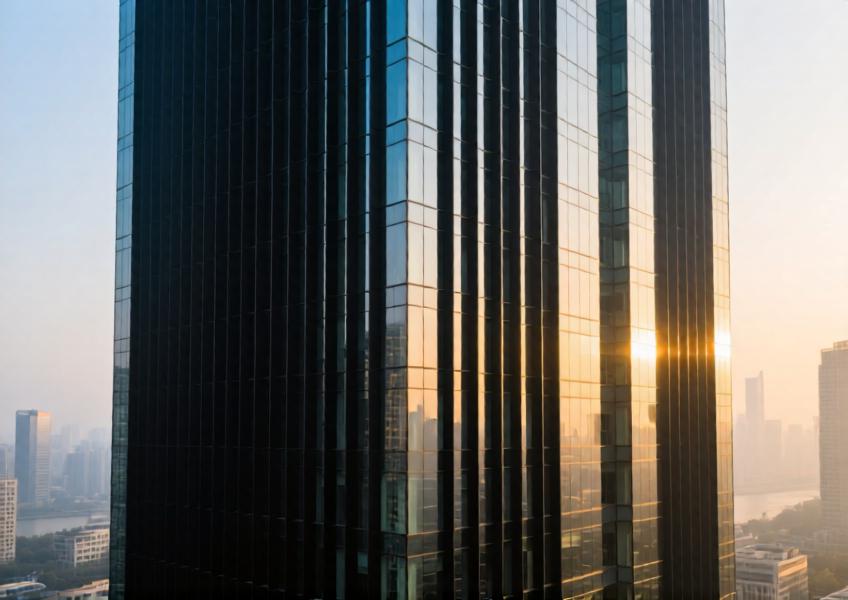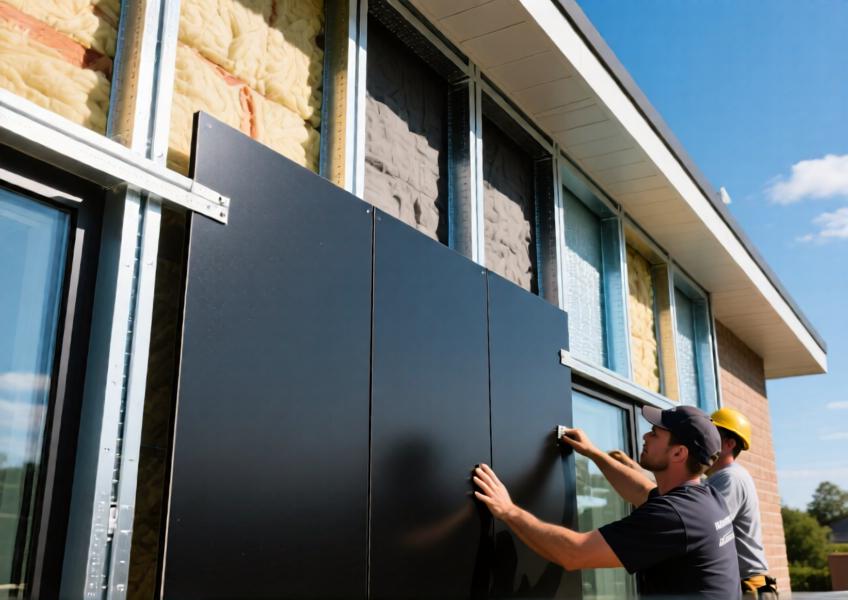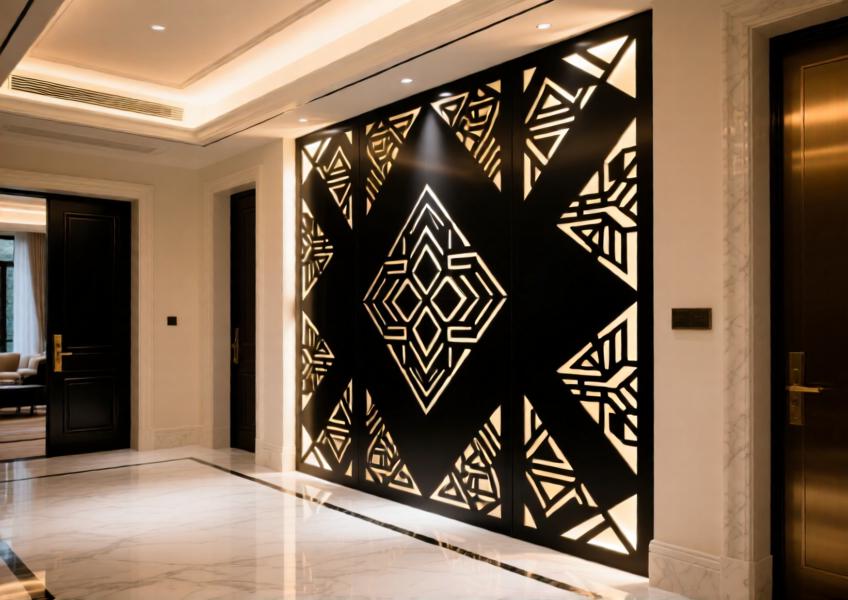

In the evolving landscape of architectural design, materials that combine durability, aesthetics, and versatility are highly sought after. Among these, the black dibond sheet has emerged as a favored choice for both exterior curtain wall systems and high-end interior decoration projects. Composed of two thin aluminum sheets bonded to a polyethylene core, this composite panel offers a sleek, modern finish while maintaining structural resilience, making it ideal for a wide range of applications.
In curtain wall engineering, the black dibond sheet is increasingly used to create dynamic façades that not only enhance visual appeal but also provide weather resistance and thermal insulation. Its lightweight nature simplifies installation on high-rise buildings, reducing structural load while maintaining a bold aesthetic presence. A recent commercial complex in Shanghai exemplifies this trend, where black dibond panels were integrated with glass curtain walls to form a striking contrast, giving the building a contemporary and sophisticated identity.


Beyond exteriors, the black dibond sheet has also found its way into premium residential and hospitality interiors. Its matte or glossy finish options allow for flexibility in design, enabling architects to craft feature walls, ceiling accents, or custom-built reception desks that exude elegance and modernity. In a luxury villa project in Beijing, black dibond panels were laser-cut into intricate geometric patterns and backlit to create a dramatic visual effect in the entrance hall, demonstrating the material’s adaptability and decorative potential.

One of the key advantages of the black dibond sheet lies in its ease of fabrication. It can be cut, bent, and shaped to fit complex architectural forms without compromising integrity. Additionally, its surface is resistant to fading, corrosion, and chemical damage, ensuring long-term performance in both indoor and outdoor environments. These properties make it especially valuable in urban settings where pollution and weather exposure are constant concerns.
As architectural design continues to push boundaries, the black dibond sheet stands out as a material that supports both creative vision and technical performance. Whether used to define a building’s exterior identity or to add a touch of sophistication to interior spaces, it exemplifies the seamless convergence of form and function in modern design.